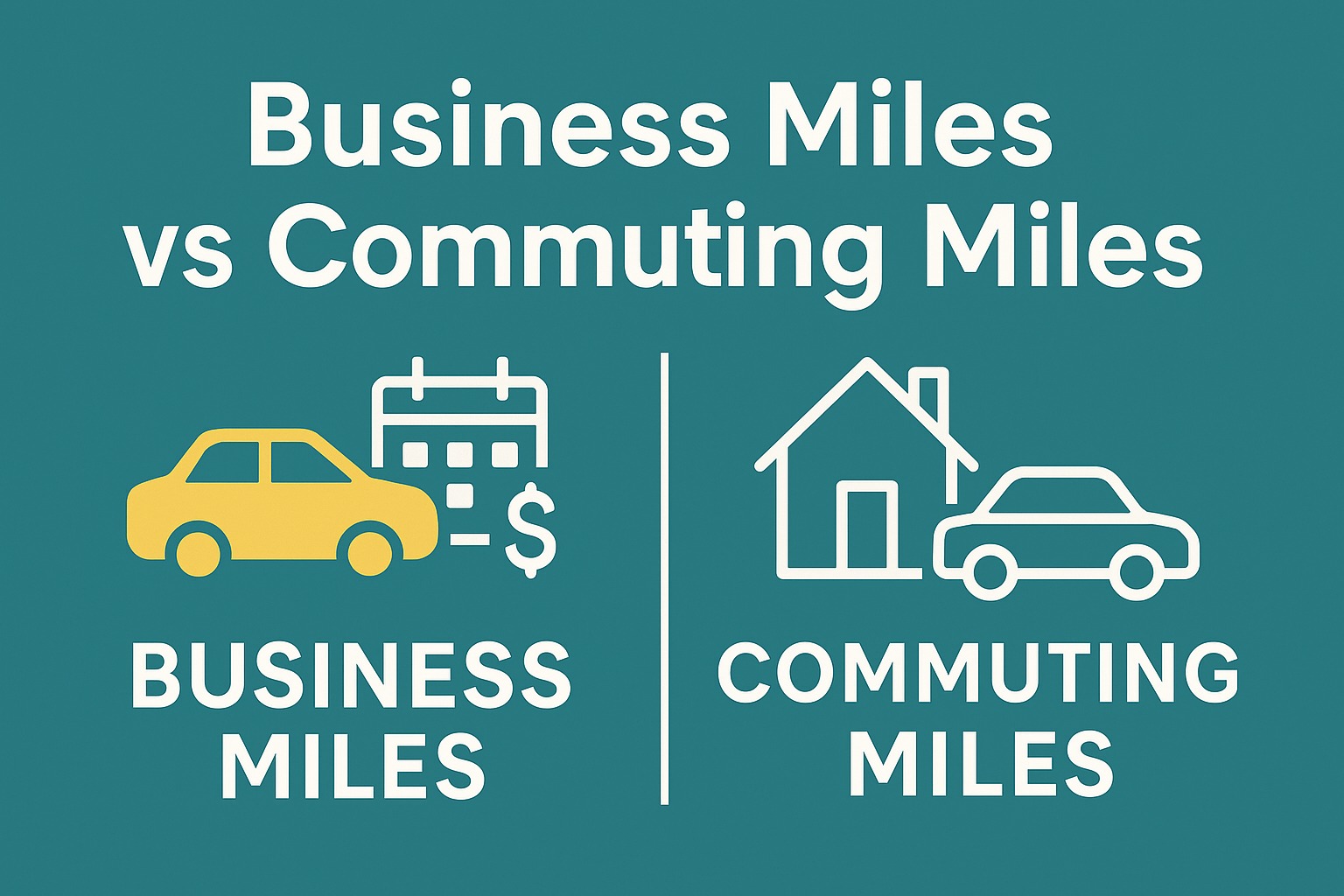Business Miles vs Commuting Miles: A Clear Guide to Mileage Deductions and Reimbursements
Understand the crucial difference between deductible business mileage and non-deductible commuting miles to maximize your tax benefits.

Introduction
When it comes to claiming tax deductions or tracking work-related travel, one of the most common areas of confusion is the difference between business miles vs commuting miles. While both involve using your vehicle, only one typically qualifies for tax deductions or mileage reimbursements. In this comprehensive guide, we’ll break down the meaning, examples, tax implications, and how to track and report mileage accurately. Whether you’re self-employed, a remote worker, or an employee, understanding these terms can save you money and prevent tax issues.
What Are Business Miles?
Definition of Business Mileage
Business miles refer to the distance you drive for work-related purposes, excluding personal commutes. This could involve visiting clients, going to a temporary work site, or attending a work conference.
Examples of Business Mileage
-
Traveling from your office to meet a client
-
Driving between multiple job sites in a day
-
Picking up office supplies or materials
-
Going from home to a temporary job site (lasting less than a year)
Tax Implications of Business Miles
According to the IRS (see IRS Publication 463), business miles are tax-deductible for self-employed individuals and reimbursable for employees if the employer provides a mileage reimbursement policy.
Key terms:
business mileage, tax-deductible mileage, work-related travel, client visits, mileage reimbursement, standard mileage rate
What Are Commuting Miles?
Definition of Commuting Mileage
Commuting miles are the distances traveled between your home and your regular workplace. Even if you perform work-related activities (e.g., calls) during this drive, it still counts as commuting.
Examples of Commuting Mileage
-
Driving from home to the office every morning
-
Returning home after work
-
Driving to a fixed job location daily
Tax Implications of Commuting Miles
Commuting mileage is non-deductible. The IRS classifies commuting as a personal expense, regardless of the distance or time.
Business Miles vs Commuting Miles: Key Differences
| Feature | Business Miles | Commuting Miles |
|---|---|---|
| Purpose | Work-related tasks beyond the commute | Daily home-to-work and work-to-home trips |
| Tax Deductible | Yes | No |
| Reimbursable | Often reimbursed by employer | Not reimbursed |
| IRS Status | Considered business use | Considered personal use |
| Examples | Client visits, supply runs | Office commutes, daily drives |
Tracking Mileage Accurately
Why You Must Track Miles
To claim mileage reimbursement or tax deductions, you need proper documentation. The IRS or your employer may ask for a mileage log showing date, purpose, origin, destination, and miles driven.
Tools for Tracking Business Mileage
-
Mileage tracking apps like MileIQ or Everlance
-
Manual logs using spreadsheets or paper
-
GPS-based auto-tracking tools in vehicles
Special Circumstances and Tips
Temporary Work Location
If you’re assigned to a work location expected to last less than a year, your drive there may be deductible as business mileage.
Home Office Exception
If your home qualifies as your primary place of business, any travel from your home to another work site can be considered business mileage.
Business Mileage Deduction Methods
Standard Mileage Rate
You multiply your business miles by the IRS-approved rate (e.g., 67 cents per mile for 2024). Easy and widely used.
Actual Expense Method
Track all vehicle-related expenses (fuel, insurance, maintenance) and deduct a business-use percentage.
How Employers Handle Mileage
Mileage Reimbursement Policies
Many companies reimburse employees for work-related travel. This doesn’t apply to commutes, only to business miles.
Record-Keeping for Employees
Employees must keep accurate logs to claim reimbursements or substantiate their employer’s expense claims.
Frequently Asked Questions (FAQ)
Can I deduct miles for driving to work?
No, the IRS considers this commuting, which is a personal expense and not deductible.
What if I stop at a client’s office on the way to work?
Only the distance beyond your normal commute may count as business mileage.
Is driving from home to a temporary job site deductible?
Yes, if the site is considered temporary (less than one year), this is usually deductible.
How do I prove my business mileage?
Keep a detailed mileage log or use a tracking app that records dates, purposes, and distances.
Can employees claim business mileage on taxes?
Only if they’re not reimbursed and meet specific IRS criteria. Otherwise, only self-employed individuals typically claim it.
Conclusion
Understanding the difference between business miles vs commuting miles is crucial for anyone who drives for work. Business mileage can lead to significant tax savings and reimbursements, while commuting remains a personal expense. By using tools like tracking apps and keeping accurate records, you ensure compliance and maximize financial benefits. With this clarity, you’ll never confuse a deductible mile with a non-deductible one again.



